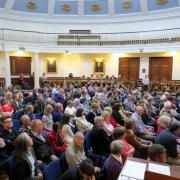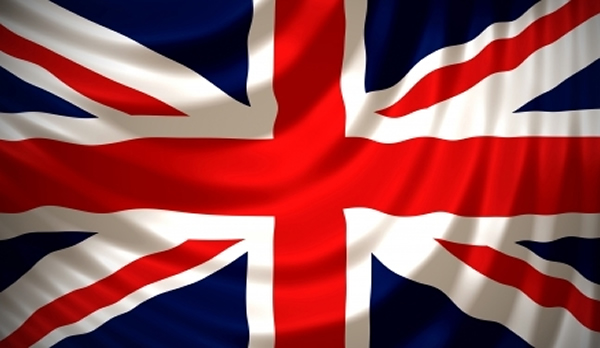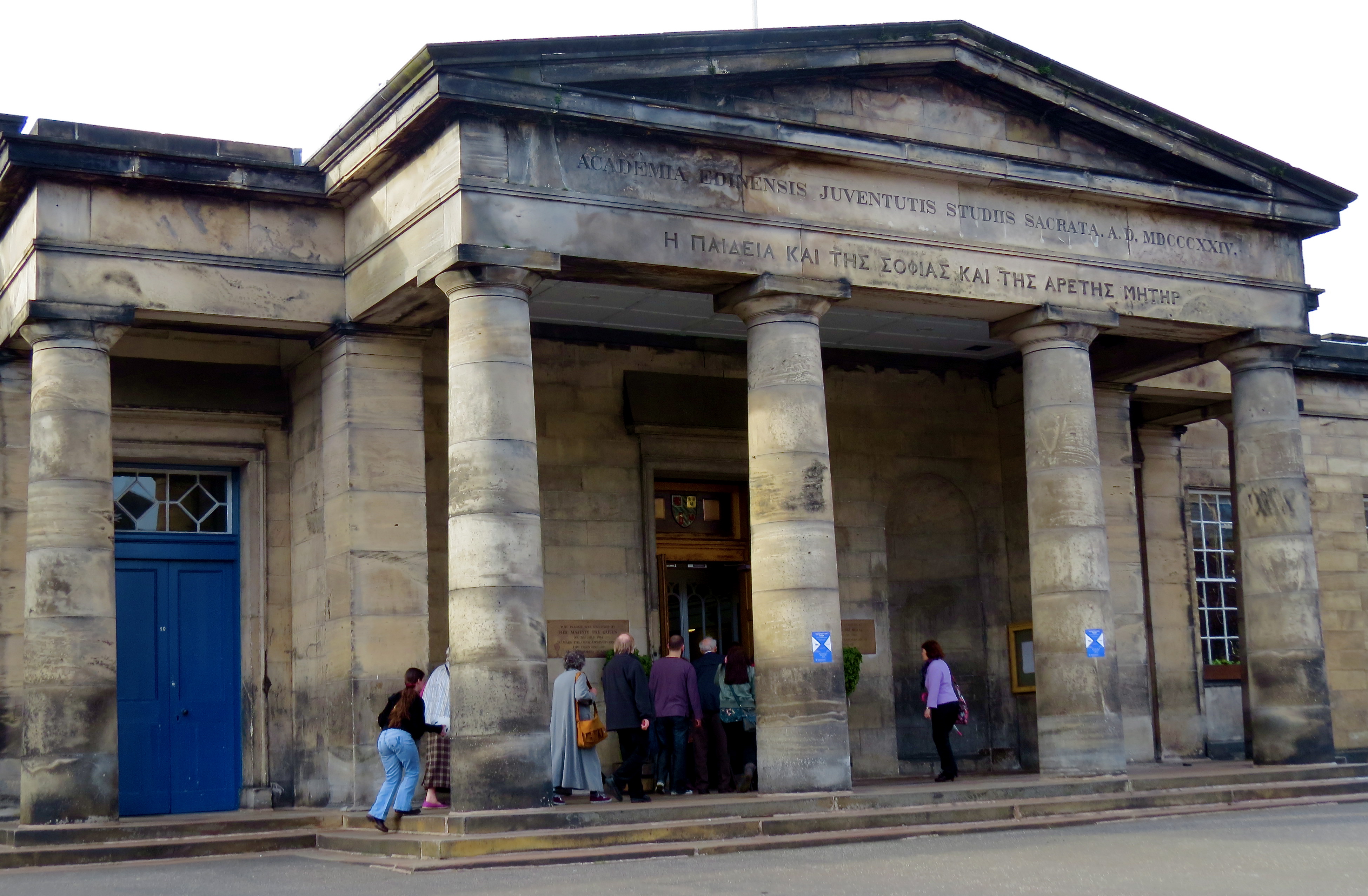
Over 200 people packed into Edinburgh Academy last night for a Scottish Independence debate organised by Stockbridge and Inverleith Community Council.
What follows is an impressionistic summary, not a complete transcript. Spurtle has no settled position on the Independence question, and has been at pains not to favour one side or party over any other in this account.
In the Chair was the redoubtable broadcaster and journalist Ruth Wishart (RW), who describes herself on social media as an ‘arts, sports, animal lover ... urban cowboy turned rural birder’.
For the Yes campaign spoke Marco Biagi (SNP) and Alison Johnstone (Scottish Greens); for the Better Together side, Sarah Boyack (Scottish Labour) and Gavin Brown (Scottish Conservatives). All four are MSPs representing either Edinburgh or Lothians constituencies at Holyrood. Each was invited to make a 5-minute introductory statement before answering questions from the floor.
Introductory statements
Sarah Boyack (SB): Described herself as for strength not insecurity, citing – currency and the pound, shared pensions across the UK, the National Health Service, a share in international development. She wants a stronger Scottish Parliament to deliver improvements in tax, employment, housing and living conditions. Maintaining the Union promises ‘the best of both worlds’ – a stronger UK and stronger Scottish Parliament.
Marco Biagi (MB): Thanked SB for making a positive case for the Union. However, Scotland is already economically healthier than UK, and Independent Scotland (IS) would be economically viable, offering counterweight to London, and alternatives to brain-drain southwards. Union uncertainty about remaining in Europe, retirement age and the state of NHS. Independence offers greater democratic accountability as in Denmark and Ireland.
Alison Johnstone (AJ): Background in local politics. IS addresses massive democratic deficit in which Scots are not represented in government by those whom they vote for. Improved, more devolved politics, not a mini-Westminister. IS offers international voice: fair trade, beacon of peace not wasteful Trident, EU. Stress on clean water, good food, improved education. Better regulation of Financial sector which led to Crash and foodbanks.
Observations: RW noted ‘the first miracle of the evening’ – politicians had spoken to time. GB’s unequivocal assessment of Union’s 300-year international ‘influence for good’ raised a few eyebrows. All 4 intros were met with applause, AJ’s gaining loudest and most sustained after condemnation of foodbanks.
Question 1: To Marco Biagi: Why is there no SNP Plan B on currency? Why are you treating us like idiots?
MB: Do not underestimate the strength of an IS’s negotiating position. Observation: Scenic ramble around the issue met with 2 vexed calls from floor to answer the question.
GB: Plan B should be laid out. Czech–Slovak currency union quickly failed because market had no confidence in it. Market would not have confidence in an SNP-led government whose whole point was to press for greater and greater differentiation.
Question 2: To Sarah Boyack: When does the Scotland Act 2012 come into force, and what does it entail?
SB: Air guns, option to raise income tax from 2016. [Momentary blank, helped out by AJ who chipped in with Stamp Duty replacement. RW remarked on surprising helpfulness. Audience laughter.] ‘Nothing revolutionary ... Devolution as a process not an event’.
AJ: ‘Transformational change’.

MB: In first term of an IS, an equivalent body would be established, alongside comfort of a written constitution to protect individuals and limit the power of government.
AJ: Greens are no fans of the unelected House of Lords. Would seek radical alternatives to reflect people’s voice. Would even consider Icelandic model of a random ballot for some positions.
SB: Not sure people would want an elected 2nd chamber in IS. Current lack of a revising chamber in Scottish Parliament is a problem for accountability.
GB: Recent fiasco over Corroboration shows need for a revising chamber.
Question 4: To Gavin Brown: Why is it ethical to be able to ‘punch above our weight’?
RW: [Question quoted GB’s introducory statement.] Responding to audience laughter and panel’s consternation: ‘I think that’s one of the wittiest questions I’ve heard in the Independence debate so far.’
GB: To maximise influence as a force for good.
MB: Denmark-sized nations do have influence on international stage. Not being part of Union would allow IS to step back from questionable UK policies we hadn’t voted for.
SB: We can already ‘step back’, as shown by recent House of Commons decision over intervention in Syria. Union offers Scotland influence in an interdependent world whilst preserving its unique identity.
AJ: This is the best question of the Indy debate so far. Bigger isn’t always better, as shown by Royal Bank of Scotland’s obsession with growth. It’s not a matter of an IS versus The World, but an IS working with neighbours. Observation: Warm applause began and continued after AJ made point about Royal Bank of Scotland.
Question 5: Long, complicated question about how an Independent Scotland would finance its debt obligations. RW paraphrased as: ‘How would we pay our own way in an Independent Scotland?’
GB: It would be possible, but only by borrowing more, putting up taxes, and cutting public spending.
MB: Doom-laden predictions always partial and originate in London. In fact, for the last 33 years (since figures available), tax generated per person in Scotland has outstripped UK. Oil will run out with or without Union. IS would allow wise use of remaining oil revenues so that Scotland doesn’t become a ‘subsidy junky’ in 40 years’ time.
AJ: Of course an IS can pay its way. It’s a question of political choices how, not if. Observation: warm applause.
SB: Oil revenues are only short-term fix. Even Norway now faces awkward questions about future. Now is the time for Scotland to pool its resources and work together with the UK, not introduce new barriers to effective finances, pensions, mortgage arrangements.
Question 6: In the event of an Independent Scotland, what would be Better Together campaigners’ Plan B to to secure democracy rather than a 1-party state?
GB: We would continue to represent our constituents in Holyrood.
SB: Would attempt to strengthen the Scottish Parliament.
MB: No chance of a 1-party state. Can’t predict the future, but a massive shake-up of parties.
AJ: IS would entail a total reinvigoration of Scottish politics. Good people across political spectrum would have a new voice in a new dawn. Observation: All speakers again received polite applause, but loudest response was to AJ’s optimistic vision.

RW: ‘I suspect I may be the only person on this platform sufficiently chronologically gifted to remember1979.’
GB: The Conservative Party’s Commission will report at the end of May. Likely to recommend more devolved tax powers and greater borrowing potential. All 3 Unionist parties will offer greater powers.
SB: Don’t see Scottish Labour as following a Westminster agenda, but am happy to work as a team. Committed to further devolution of powers to Scottish Parliament.
Question 8: [Follow-up to Question 7] To Better Together speakers. How can we trust you after the whoppers told in 1979 promising additional powers, and the buried McCrone Report?
RW: We’ve covered that. Next question.
Question 9: To Yes speakers. I’ve enjoyed hearing Yes campaigners speak from the heart. Now speak from the head. Flesh out the bones. Give me details. How big would taxes be?
AJ: Yes campaign has produced more hard figures than Better Together. We need to: produce high-quality high-value jobs; properly resource renewables industry; invest in child care; do away with inequality, greater equality in pay ratios; improve education. Observation: Questioner repeatedly called out and/or muttered ‘What about details? Answer the question!'
MB: Deliver economic growth. Invest in R&D. Improved female participation in workforce would produce more revenue than oil. Observation: Questioner again cross about lack of detail. ‘That’s a nice list of aspirations, but I’m not hearing how.’
AJ: Close tax loopholes and gain £25b.
Question 10: To Better Together speakers. Are you happy to live in a state with weapons of mass destruction, and are they more or less useful in an Independent Scotland?
SB: I’ve long been opposed to WMD, but moving them away from the Clyde would not solve the problem. A global/multinational solution required. Observation: Warmest applause so far for SB.
GB: Would be terrific if WMD had never been invented, but unwise to unilaterally disarm when can’t foresee challenges of next 30 years.Would a new generation of weapons help multilateral disarmament?
MB: Worldwide, there are 180 countries without nuclear weapons. WMD are hugely expensive. Money better spent on almost anything (including conventional weapons) other than Trident.
AJ: Change has to start somewhere. IS must be brave and individual. No point in giving up your knife if you then hang out in an armed gang.
Question 11: Would an Independent Scotland be a monarchy or a republic?
GB: A monarchy to begin with, but can imagine that changing quite swiftly.
AJ: That’s a question for the Scottish people, and would involve another referendum.
SB: Impossible to say.
MB: Examples of Canada and Australia suggest IS likely to remain a monarchy.

MB: Have Italian forebears and English in-laws – am confident that good relations between friends and families across borders would remain good.
GB: Scots would retain multiple identities.
SB: [Spurtle reporter either didn’t hear or couldn’t remember response.]
AJ: ‘There is no chance of losing good relations. ‘Independence is only a question of governance.’ Observation: Again, loudest applause for AJ.
Question 13: What would be the results of an Independent Scotland diverging from Rump UK on trade rules?
MB: Despite dire predictions to the contrary, economic growth followed Scottish Devolution. No reason same would not happen again.
GB: Trade will continue, but always easier to trade within borders than across them. Expect problems, especially in Financial Services industry.
SB: See no benefit in introduction of a new border and consequent obstacles, especially in Financial Services. Inevitable problems, even if neither side wants them. Observation: Warm applause.
AJ: Have spoken to 100s of unconcerned business leaders. IS and Rump UK would work together to produce prosperous and sustainable future.
Question 14: Much charitable funding current flows from England to Scotland. How would IS plug shortfall?
MB: I had this included as answer to FAQs in White Paper. Independence would raise no obstacle to flow of charitable funding in either direction. See e.g. Ireland.
SB: Charities will split, causing cross-border problems, as with pensions. Fear it will cause long-term difficulties, especially for small organisations.
GB: To be honest, not entirely sure. Lack of analysis on all sides and mixed opinions.
AJ: Charities already do too much because of government deficit and welfare reforms. Government is not doing enough. Too many people rely on charity. Observation: Two rounds of applause during this answer.
Question 15: I love my British passport. If there is an Independent Scotland, how will you look after me in some obscure part of the world?
MB: Go to a Scottish or European Union member embassy. Observation: Loud and amused applause.
RW: Think it’s been stated that an IS would have c.70 embassies – about the same as Ireland.
GB: UK has 200+ embassies/consulates. IS would probably start with 20. Would lead to challenges in some parts of the world, and reduction in trade network/promotion opportunities.
AJ: Think instead of the opportunities. International diplomats locating in Edinburgh. Phenomenal global interest in Scotland. A true world capital. No concerns about promotion of Scottish trade worldwide.
SB: Edinburgh is already buzzing without Independence. Worldwide reach of British Council and embassies promoting Scotland would be huge loss. Already have efficient and cost-effective infrastructure – why reinvent it? Observation: Loudest applause so far for SB.

GB: [Having shared RW laughter about this not being such a potential problem for Conservative MSPs] Interesting to know who would stand in 2015 for 11-month job as MP in Westminster.
SB: [Partly in response to RW’s question: Does this explain your lot’s opposition to Independence, almost to a man?] It’s all highly theoretical.
MB: [In response to RW’s question: Would it be fair for Scottish MPs to serve down there under the circumstances?] Westminster would need a Scottish voice for as long as possible. Better question would address Scottish peers in the House of Lords and their ability to retain cushy numbers after IS.
AJ: ‘We’ll just have have to wait and see. Perhaps we will benefit from their talents. Perhaps not.’
Question 17: To Marco Biagio: In the light of SNP slashing Corporation Tax and its increasingly neo-liberal agenda, why should we risk Independence if all we get at the end of it is just another ‘Third-Way’ government?
MB: IS offers chance of change and choice – it’s not about individual party policies at this stage but about shaping the future for ourselves.
GB: 3% reduction in Corporation Tax (compared to UK) is SNP’s only tax pledge, and really doesn’t stack up.
Question 18: In the event of vote going against your hopes, should your party leaders resign?
MB: For Alex Salmond to decide.
AJ: For Patrick Harvie to decide.
SB: Speculation is a good spectator sport, but I prefer to focus on policies.
GB: Impossible to speculate.
The vote
So, after 18 questions and two lively but good-natured hours, the end was nigh. Ruth Wishart asked for shows of hands for and against Scottish Independence, and indecision. This Spurtle correspondent reckoned on about 20 Undecideds, but could not judge between the Fors and Againsts. Wishart – who confessed she had never been hot on Arithmetic at school – decided the Fors had shaved it.
HOW WAS IT FOR YOU?
- All the panellists were clearly well versed, and calm, articulate and mostly on top of their arguments. No-one got shot down in flames. The very slim Yes victory was perhaps a fair reflection of the more engaging speakers.
- Sarah Boyack came across as competent but subdued. She did not engage at a personal level with GB or convey any real emotional enthusiasm for the Union. Labour perhaps struggles to combine a display of confidence in the status quo with an urgent desire to improve and reform Scotland. At present, it lacks clear offers for Scotland after a No vote. Boyack’s worst moment came in Question 7, where she seemed to lose her way, or Question 14 (a particularly gloomy interlude with pensions dragged in for irrelevant added misery). She made one of the best debating points of the evening in Question 4 but her finest hour was either Question 10 or 15.

- Gavin Brown appeared serious-minded, and more well-informed than his audience would understand on the potential financial and fiscal risks facing an Independent Scotland. Like SB – from whom he was separated by a layer of invisible bubble-wrap – he came across as technocratic more than patriotic. He did not enthuse about anything much except overseas trade fairs and 300 years of foreign policy. As shown by audience response to AJ in Question 4, the Conservatives may find beating the drum for a discredited Financial sector within the Union – rather than a reformed and better regulated Financial sector under Independence – is not as attractive as they assume. For this reason, GB’s worst moment and finest hour were both in Questions 1 and 5. He did very well playing a dead bat to the Question 4 googly.

- Alison Johnstone answered more from the heart than any other speaker. She gave a personal account of how she began in politics, and how it linked to a desire for Independence. She answered more passionately, and – crucially – she answered last more often than any other speaker. Of this coincidence she took full advantage, wrapping up questions with some nice rhetorical flourishes which drew applause. Her worst moment was Question 9, where she failed to catch the questioner’s repeated pleas for hard facts/figures. Her finest hour was either Question 4, 5 or 6.

- Interestingly, all 4 panellists did well at Question 5, probably because this is where they’ve had most practice.
- The fact that the debate was fair, cordial, audible, and began and finished on time owes much to the politicians involved, much to Ruth Wishart’s beady-eyed charm, and a great deal to the unsung behind-the-scenes efforts of Stockbridge & Inverleith Community Council. Thanks and congratulations all round.
Did you attend last night’s meeting? What were your impressions? Do you disagree with our account? Have we misrepresented or missed anything? Let us know by email: spurtle@hotmail.co.uk or Twitter: @theSpurtle or Facebook: Broughton Spurtle
--------------------------------------
@theSpurtle Kind of depressing: #EuroElections hustings yesterday only got 20 ppl: turnout next week could be so low #UKIP get elected.
 Gary McLean-Quin Would that our "national press" cover such events so thoroughly, wittily, impartially and accurately. We'd be a different country!
Gary McLean-Quin Would that our "national press" cover such events so thoroughly, wittily, impartially and accurately. We'd be a different country!
 Robin Gillanders Excellent reporting!
Robin Gillanders Excellent reporting!
@theSpurtle thanks for a remarkable resume of a very interesting debate. Was greatly impressed by the turnout.
@theSpurtle great article, looks like it was an interesting evening.


